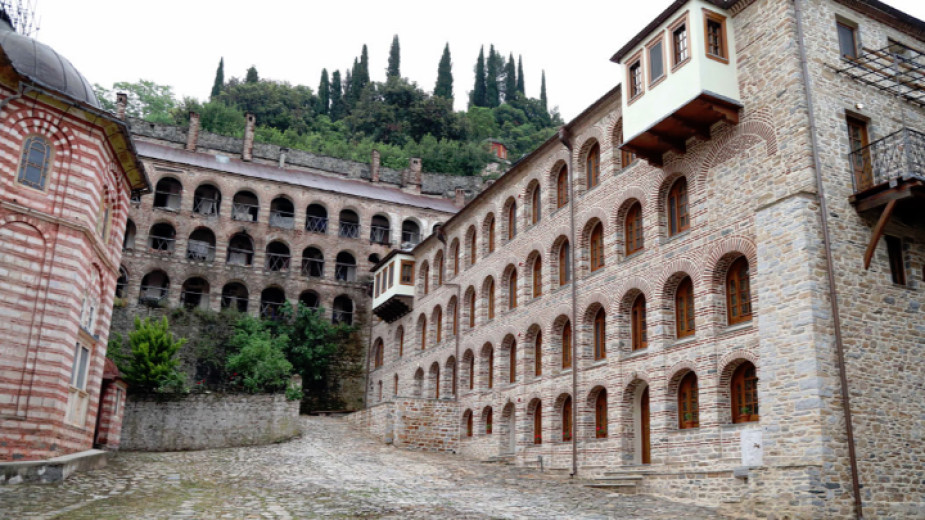 4
4
The treasure trove of documents, manuscripts and printed books the Zograf monastery has housed for centuries was the focus of an international conference at Sofia University St. Kliment Ohridski with the participation of researchers from Europe and America. At the forum they presented the latest discoveries they made while working with the monastery archives.
Zograf monastery was most probably founded in the 9th-10th century. According to legend it was founded by three brothers – Moses, Aaron and Ivan Selima from Ohrid, who decided to put up a church on the spot where the monastery now rises. They took a plank on which they wanted to depict their patron saint, but as they did not know who it was, they asked God to reveal his name to them. On the next morning they saw an icon of St. George had appeared on the plank, hence the name of the monastery.
The monastery library has preserved documents connected with early Old Bulgarian texts, including Slavonic-Bulgarian History by Paisius of Hilendar.
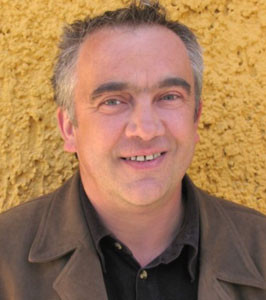 “From its outset the monastery has been connected with the Slavic script and education,” says Prof. Andrey Boyadzhiev from Sofia University’s "Cyril and Methodius Studies" department. “The oldest document in it that has come down to us is from the mid-10th century and is a reflection on that Old Bulgarian period, which, unfortunately, has not left us a lot of preserved documents, though it was during that precise period that the development of Bulgarian literature started.
“From its outset the monastery has been connected with the Slavic script and education,” says Prof. Andrey Boyadzhiev from Sofia University’s "Cyril and Methodius Studies" department. “The oldest document in it that has come down to us is from the mid-10th century and is a reflection on that Old Bulgarian period, which, unfortunately, has not left us a lot of preserved documents, though it was during that precise period that the development of Bulgarian literature started. 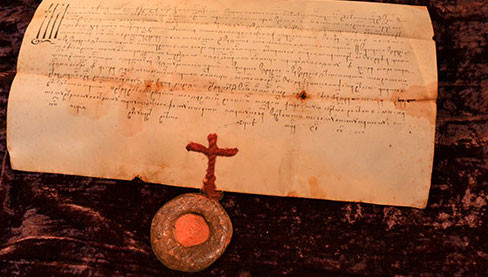
So, with the help of the Zograf monastery archives we are able to find the link between Old Bulgarian culture and the culture of what is known as the Silver Age (14th century). And as this is living culture we are talking about, we can trace how it has changed and evolved through ten centuries into a cultural hub where worship service has been uninterrupted.”
Copies of some of these documents are now on display as part of the exhibition on in the university library. The exhibition also features photographs of the so-called Dragan Menaion, the Zograf sheets and Slavonic-Bulgarian History.
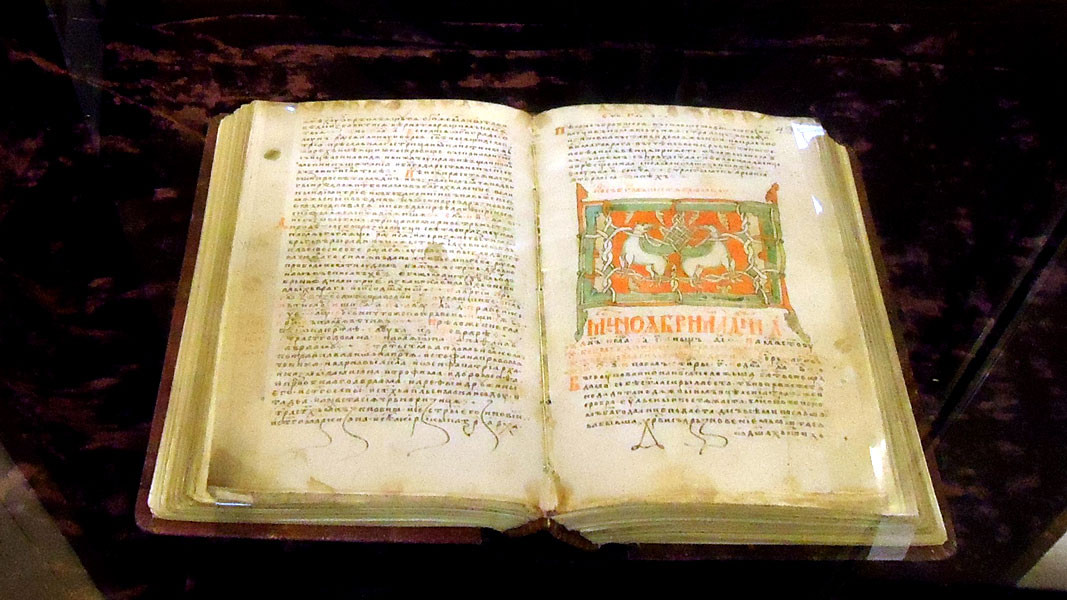
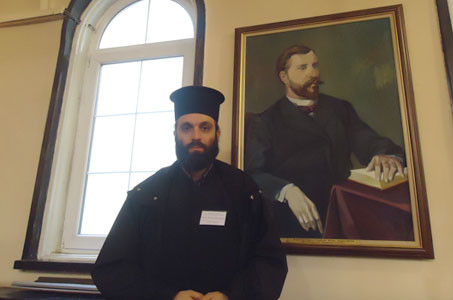 “For the first time a Bulgarian monastery is mounting an exhibition in an attempt to reveal the overall structure of the valuable items it is in possession of connected with history, culture, spirituality – things that are intrinsically connected as we live our lives in the spiritual as much as in the material world,” says priest Kozma Popovski from the Ecclesiastical Historical and Archival Institute of the Patriarchate. “Nobody knows how many documents there are at the monastery because new ones keep cropping up as the Zograf archive legacy has never been studied systematically, this is the first time such attempts are being made. What we know is that the later monastery archives have never been studied but new data is constantly being revealed about some of the items that we are familiar with and they afford us a deeper insight. The connections researchers make with other archives, housed in other locations, show ever more clearly that Zograf monastery and the other monasteries on Mount Athos were connected with the rest of the Eastern Orthodox world, but also with the world at large.”
“For the first time a Bulgarian monastery is mounting an exhibition in an attempt to reveal the overall structure of the valuable items it is in possession of connected with history, culture, spirituality – things that are intrinsically connected as we live our lives in the spiritual as much as in the material world,” says priest Kozma Popovski from the Ecclesiastical Historical and Archival Institute of the Patriarchate. “Nobody knows how many documents there are at the monastery because new ones keep cropping up as the Zograf archive legacy has never been studied systematically, this is the first time such attempts are being made. What we know is that the later monastery archives have never been studied but new data is constantly being revealed about some of the items that we are familiar with and they afford us a deeper insight. The connections researchers make with other archives, housed in other locations, show ever more clearly that Zograf monastery and the other monasteries on Mount Athos were connected with the rest of the Eastern Orthodox world, but also with the world at large.”
Photos: Diana Tsankova and BGNES
The Patriarchal Cathedral of St Alexander Nevsky is celebrating its temple feast today. The cathedral, a symbol of the Bulgarian capital, was built "in gratitude to the Russian people for the liberation of Bulgaria from Ottoman rule in 1878". Who..
On November 22 and 23, the Bulgarian Orthodox Church will solemnly celebrate the 100th anniversary of the consecration of the Patriarchal Cathedral "St. Alexander Nevsky" . For a century the cathedral has been "a witness to all the hopes and..
The Feast of the Epiphany - the entry of the Theotokos into the Temple - is one of the oldest and most revered feasts in the Orthodox world. It was introduced in Constantinople around the 8th century during the time of Patriarch Tarasius. It was six..
105 years ago, on November 27, 1919, a treaty was signed in the Parisian suburb of Neuilly-sur-Seine, officially ending Bulgaria's..

+359 2 9336 661
